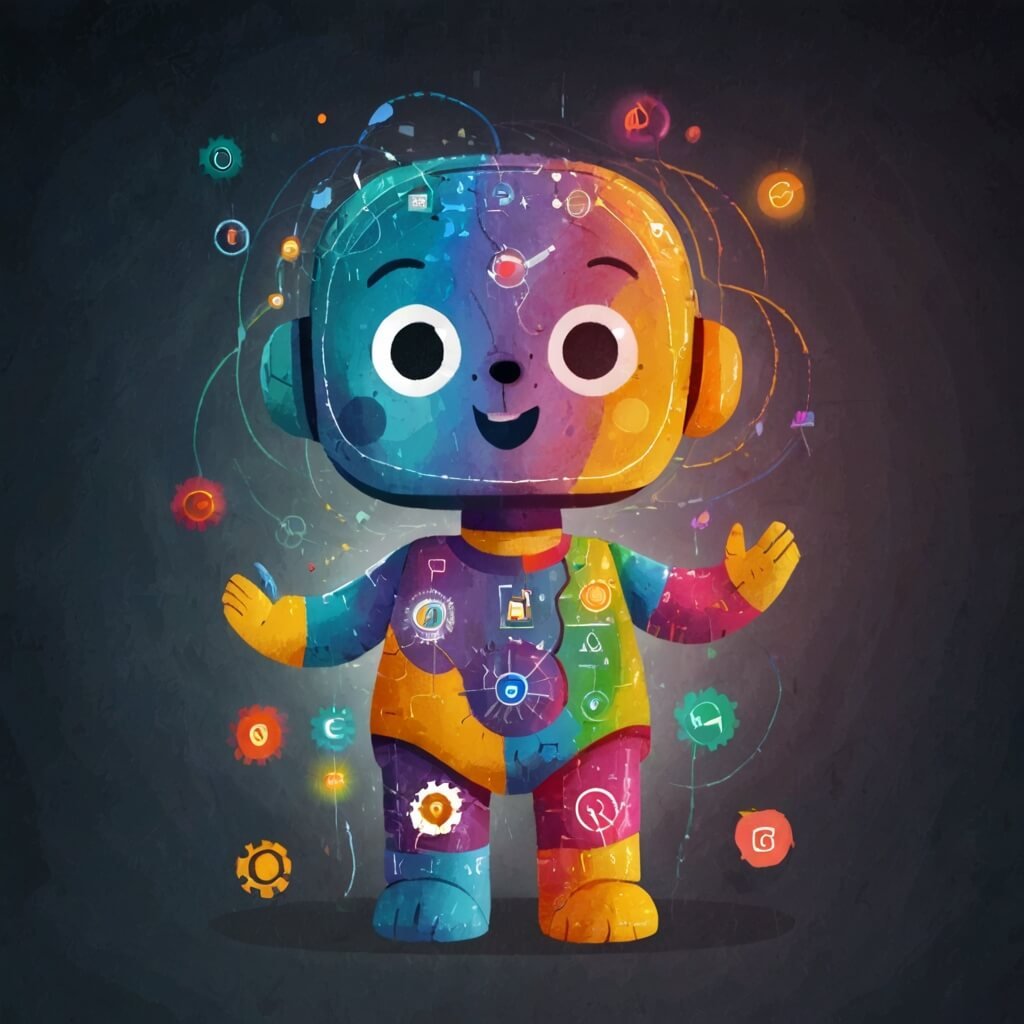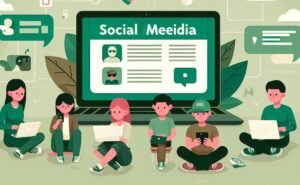Introduction
Hey there! Have you noticed how the digital landscape is constantly evolving? In today’s fast-paced world, businesses are seeking innovative ways to reach their target audience and stay ahead of the competition. That’s where digital marketing and artificial intelligence (AI) come into play! They are undoubtedly two of the hottest topics in the business world right now. Digital marketing harnesses the power of the internet to market products and services, while AI brings intelligence and automation to the table. When these two forces combine, the possibilities for businesses to enhance their marketing strategies and improve customer experiences are endless. In this article, we’ll explore the exciting intersection of digital marketing and AI, delving into how they work together to revolutionize the way businesses connect with their audience and achieve their goals.
Importance of Artificial Intelligence in Digital Marketing
Digital marketing has become an integral part of every successful business. From social media campaigns and search engine optimization to content creation and email marketing, digital channels offer infinite opportunities to engage with customers and drive growth. However, in today’s age of information overload, standing out from the crowd can be quite challenging. This is where AI steps in to lend a helping hand. By leveraging AI technology and algorithms, businesses can collect and analyze vast amounts of data, enabling them to better understand their audience’s preferences and behaviors.
This valuable insight empowers marketers to create more personalized and targeted campaigns that truly resonate with their customers. Whether it’s predicting consumer behavior, optimizing ad campaigns, or providing tailored recommendations, AI plays a pivotal role in revolutionizing the way businesses approach and execute their digital marketing strategies. Join us as we uncover the remarkable ways in which AI is transforming the world of digital marketing!

History and Evolution of Digital Marketing
Background
In the ever-evolving landscape of marketing, digital marketing stands out as a transformative force reshaping how businesses connect with their audiences. Over 4.62 billion people actively use social media globally, digital marketing has become an indispensable tool for professionals across industries. At its core, digital marketing entails leveraging electronic media to promote products and services to targeted consumers and businesses.
Understanding the roots of digital marketing provides insight into its rapid evolution. Coined in the ’90s alongside the rise of personal computers and server-client architecture, digital marketing gained traction as technology advanced. The advent of search engines like Archie in the early internet era paved the way for Search Engine Marketing (SEM), which encompasses strategies such as Search Engine Optimization (SEO) and paid advertising.
Social Media Emergence
The emergence of social media platforms further revolutionized digital marketing, offering businesses unprecedented opportunities to engage with global audiences. Platforms like Facebook, launched in 2004, rapidly became advertising powerhouses, enabling brands to connect with consumers and drive revenue through targeted ads and influencer partnerships.
Mobile Usage
As mobile usage surged, marketers adapted to Google’s Accelerated Mobile Pages (AMP) project, emphasizing the importance of mobile-friendly content and seamless user experiences. This shift reflects the dynamic nature of digital marketing, where strategies evolve in response to changing consumer behaviors and technological advancements.
Marketing Strategy
Data-driven marketing strategies have also come to the forefront, with Customer Relationship Management (CRM) tools empowering brands to cultivate long-term relationships with customers through personalized campaigns. By harnessing data analytics, businesses can anticipate consumer preferences, refine target audiences, and measure marketing performance more accurately.
Innovations
Innovations such as voice search and interactive content further diversify digital marketing tactics, offering new avenues to engage and retain customers. Voice search, in particular, represents a burgeoning trend, providing businesses with opportunities to enhance discoverability and deliver relevant content to users seamlessly.
Overall, the history of digital marketing underscores its transformative impact on the marketing landscape. From its nascent beginnings in the ’90s to the present-day era of data-driven strategies and interactive experiences, digital marketing continues to redefine how businesses connect, engage, and thrive in an increasingly digital world.
Definition and Basics of Artificial Intelligence
Artificial intelligence (AI) represents the culmination of decades of research and development in computer science, aiming to imbue digital systems with capabilities traditionally associated with human intelligence. At its core, AI encompasses a broad spectrum of technologies, including machine learning, deep learning, and natural language processing (NLP), enabling computers to perform tasks such as speech recognition, decision-making, and pattern identification.
Building upon the foundation laid by the early digital computers of the 1940s, the evolution of information technology and the internet paved the way for the emergence of digital marketing as we know it today. Researchers have explored the potential of programming computers to emulate complex cognitive processes. While early successes demonstrated the proficiency of computers in tasks like mathematical theorem proving and chess playing, achieving human-level flexibility and understanding remained elusive. Despite advances in processing speed and memory capacity, no programs have yet matched the breadth of human intelligence across diverse domains.
However, AI has made significant strides in specific domains, with some programs attaining levels of performance comparable to human experts. Applications of AI range from medical diagnosis and computer search engines to voice and handwriting recognition, showcasing its versatility and real-world impact. Chatbots, for instance, leverage AI to engage in natural language conversations, providing assistance and information to users.
The ongoing evolution of AI continues to push the boundaries of what is possible, driving innovation in fields as diverse as healthcare, finance, and entertainment. As research and development efforts accelerate, the potential for AI to augment and enhance human capabilities across various domains remains a driving force in shaping the future of technology and society.
The Relationship between Digital Marketing and Artificial Intelligence
Artificial intelligence (AI) is revolutionizing digital marketing by enabling marketers to enhance the customer experience through innovative technologies and strategies. Four significant developments leveraging AI stand out in this regard: chatbots, predictive and targeted content, content creation, and image recognition technology.
Chatbots
Chatbots, powered by AI, serve as virtual assistants capable of engaging in conversations with customers, whether through auditory or textual interactions. These chatbots play a crucial role in providing efficient customer service, gathering valuable customer data, and delivering targeted messages across various channels. For instance, the National Australia Bank (NAB) implemented a chatbot to assist business customers, answering queries and streamlining administrative tasks around the clock.
Predictive Analysis
Predictive and targeted content is another area where AI-driven solutions excel. By analyzing customer data, AI can predict future behavior and tailor content to individual preferences. This personalized approach extends to email marketing, where dynamic content selection based on past interactions enhances engagement and fosters customer loyalty. Additionally, AI-powered churn prediction helps identify disengaged customers, allowing marketers to re-engage them with relevant content.
Content Creation
Content creation, a perennial challenge for marketers, benefits immensely from AI technologies. AI can generate high-quality written content, ranging from articles to email subject lines, saving time and resources while maintaining customer-focused messaging. Platforms like Persado specialize in AI-generated language for marketing communications, ensuring purposeful content creation with minimal human intervention.
Image Recognition
Image recognition technology enhances the customer experience by personalizing interactions and facilitating product discovery. Retailers like Macy’s leverage AI-powered image search capabilities, allowing customers to upload photos and find similar items in the inventory. This seamless integration of AI enhances user engagement and simplifies the shopping experience.
Overall, AI-driven advancements in digital marketing empower marketers to deliver personalized, timely, and relevant experiences to their audiences. By leveraging chatbots, predictive content, automated content creation, and image recognition, businesses can enhance customer satisfaction, drive conversions, and stay ahead in a competitive digital landscape.
How Artificial Intelligence Enhances Digital Marketing Strategies
Artificial intelligence (AI) revolutionizes various aspects of digital marketing, enhancing creativity, efficiency, and decision-making processes. AI-powered SaaS tools offer invaluable assistance in brainstorming, research, content creation, reporting, personalization, and mass optimization, optimizing marketing initiatives for maximum impact.
AI Tools
One key area where AI excels is in brainstorming, where tools like ChatGPT generate topic ideas, keywords, and emerging trends, fueling data-driven marketing strategies. These tools also aid in content creation by suggesting article headlines, topics, and even generating entire articles based on specified prompts. While AI augments human creativity rather than replacing it, it significantly expedites the content creation process, enabling marketers to produce engaging content at scale.
Data Analysis
In research and customer data analysis, AI tools analyze past campaign performance and consumer behavior, providing deep insights into marketing effectiveness. By harnessing data from diverse sources, AI facilitates precise customer profiling and campaign optimization, ensuring targeted and personalized marketing efforts. Moreover, AI assists in competitor analysis by automating data collection and analysis, uncovering competitor tactics and market positioning for a competitive edge.
Report Generation
Reporting benefits immensely from AI’s capabilities, ensuring accurate data analysis and visualization. AI-generated reports highlight meaningful patterns and trends, identifying areas for optimization and improvement. This data-driven approach enhances decision-making and enables marketers to better connect with their target audience.
Personalization
Personalization is another area where AI shines, as consumers increasingly expect tailored experiences. AI-powered tools like OptiMonk’s Smart Personalizer deliver hyper-personalized experiences by matching messaging to individual preferences, boosting relevancy and conversions. Similarly, mass optimization becomes feasible with AI, enabling businesses to execute large-scale strategies for product page optimization. Tools like the Smart Product Page Optimizer automate the optimization process, enhancing conversion rates across hundreds of product pages simultaneously.
In summary, AI empowers marketers to leverage data-driven insights, enhance creativity, and deliver personalized experiences at scale. By integrating AI-powered tools into their marketing arsenal, businesses can stay ahead of the curve and drive impactful marketing initiatives in an increasingly competitive digital landscape.




